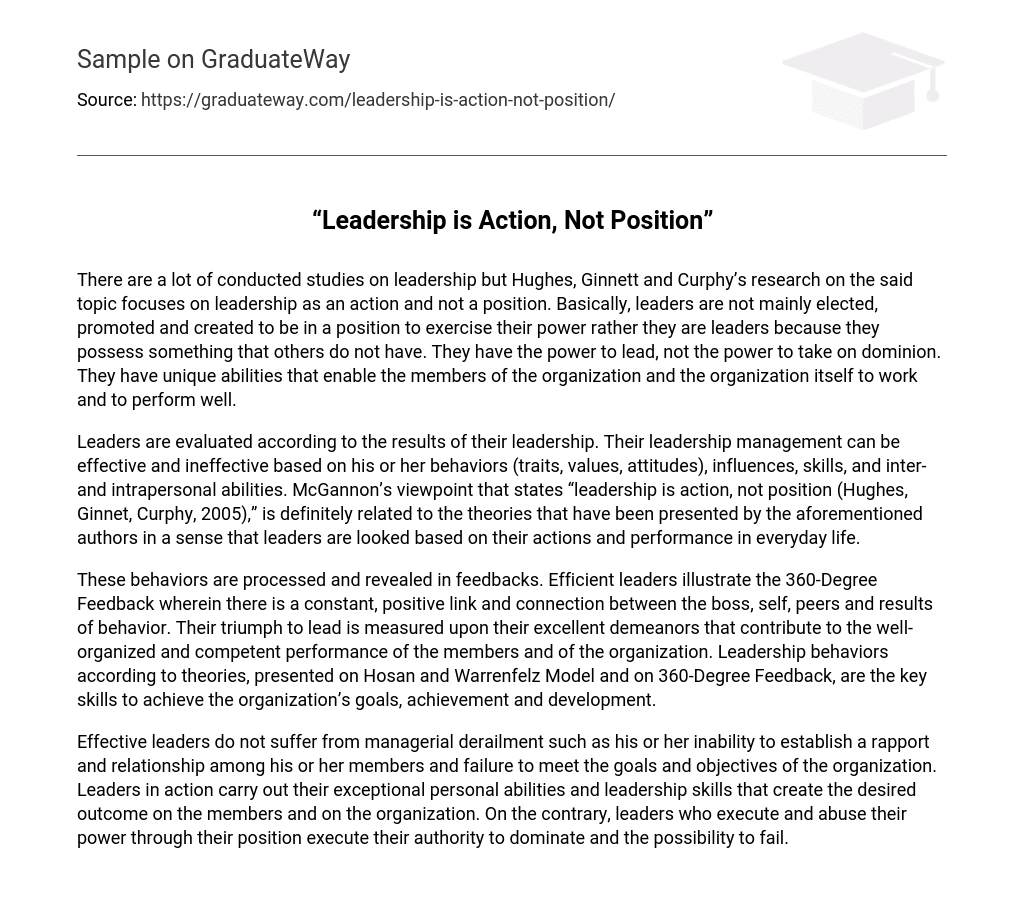There are a lot of conducted studies on leadership but Hughes, Ginnett and Curphy’s research on the said topic focuses on leadership as an action and not a position. Basically, leaders are not mainly elected, promoted and created to be in a position to exercise their power rather they are leaders because they possess something that others do not have. They have the power to lead, not the power to take on dominion. They have unique abilities that enable the members of the organization and the organization itself to work and to perform well.
Leaders are evaluated according to the results of their leadership. Their leadership management can be effective and ineffective based on his or her behaviors (traits, values, attitudes), influences, skills, and inter- and intrapersonal abilities. McGannon’s viewpoint that states “leadership is action, not position (Hughes, Ginnet, Curphy, 2005),” is definitely related to the theories that have been presented by the aforementioned authors in a sense that leaders are looked based on their actions and performance in everyday life.
These behaviors are processed and revealed in feedbacks. Efficient leaders illustrate the 360-Degree Feedback wherein there is a constant, positive link and connection between the boss, self, peers and results of behavior. Their triumph to lead is measured upon their excellent demeanors that contribute to the well-organized and competent performance of the members and of the organization. Leadership behaviors according to theories, presented on Hosan and Warrenfelz Model and on 360-Degree Feedback, are the key skills to achieve the organization’s goals, achievement and development.
Effective leaders do not suffer from managerial derailment such as his or her inability to establish a rapport and relationship among his or her members and failure to meet the goals and objectives of the organization. Leaders in action carry out their exceptional personal abilities and leadership skills that create the desired outcome on the members and on the organization. On the contrary, leaders who execute and abuse their power through their position execute their authority to dominate and the possibility to fail.





